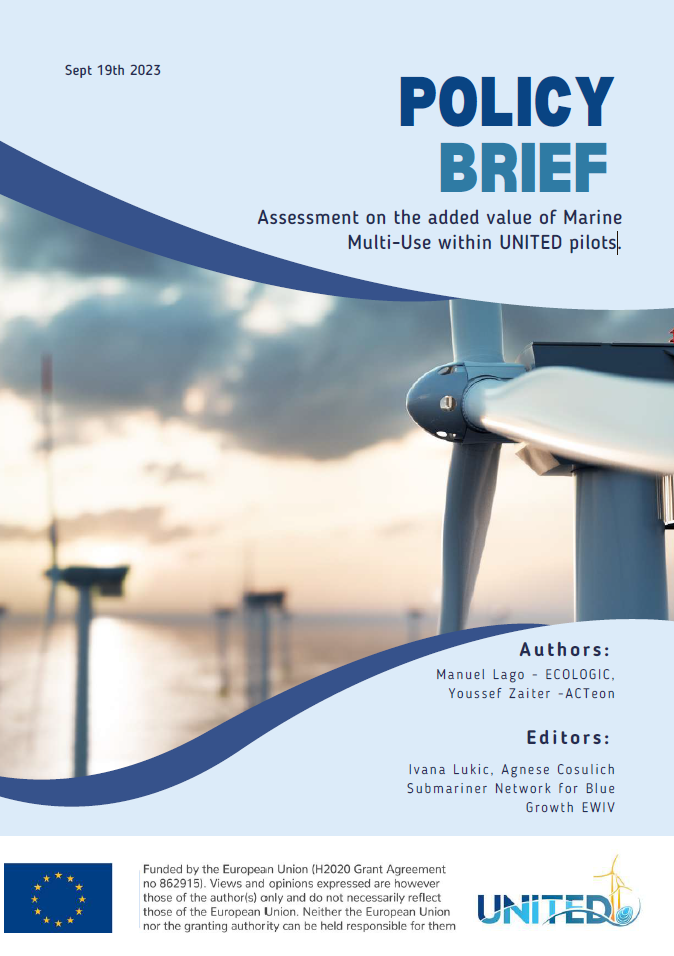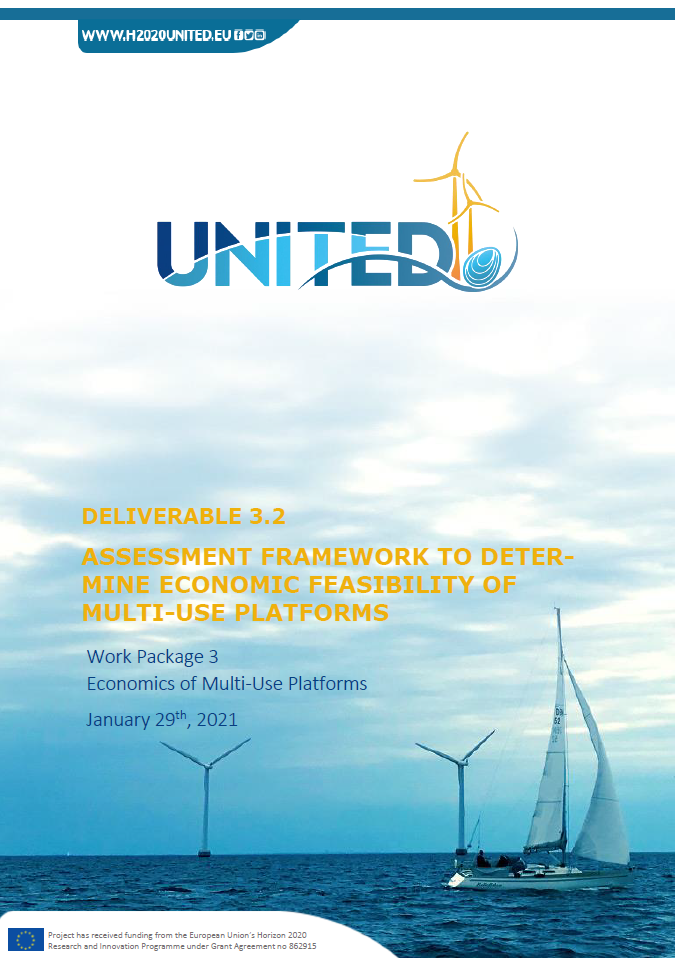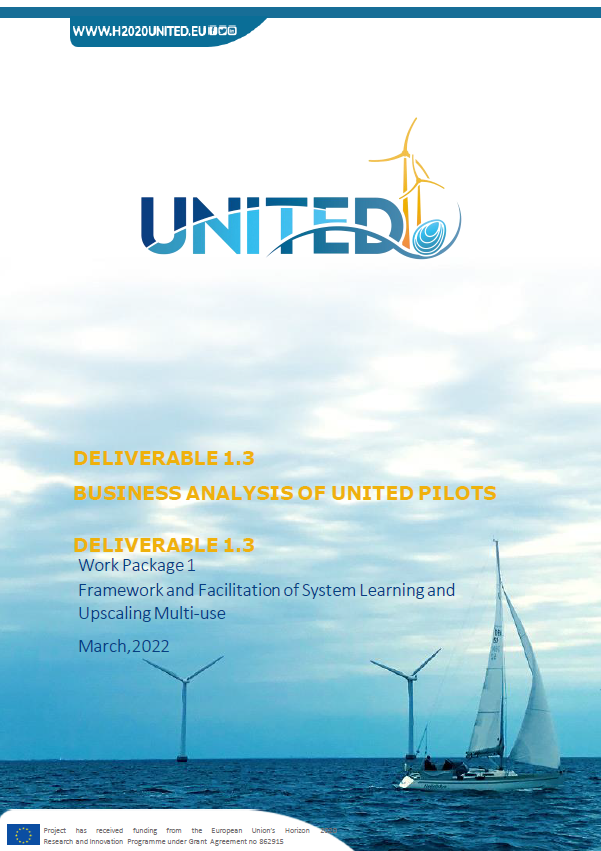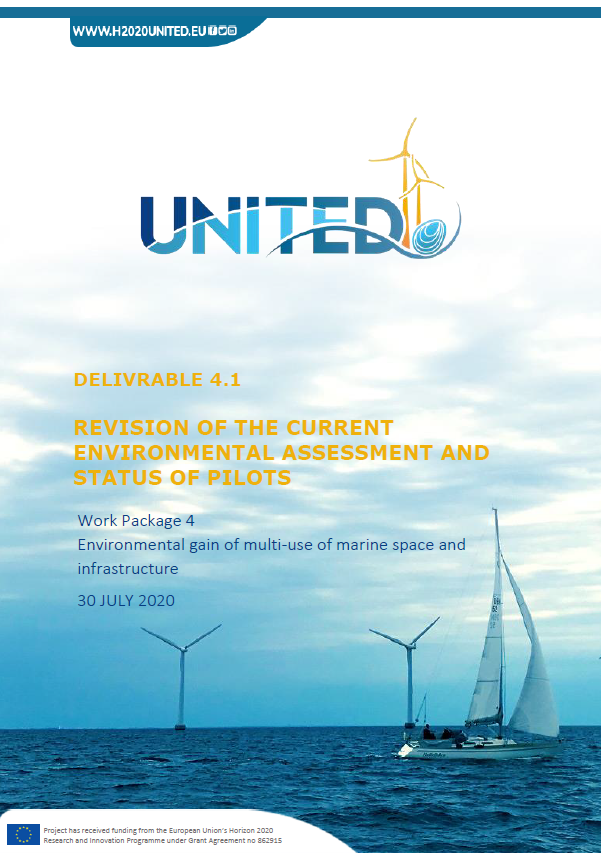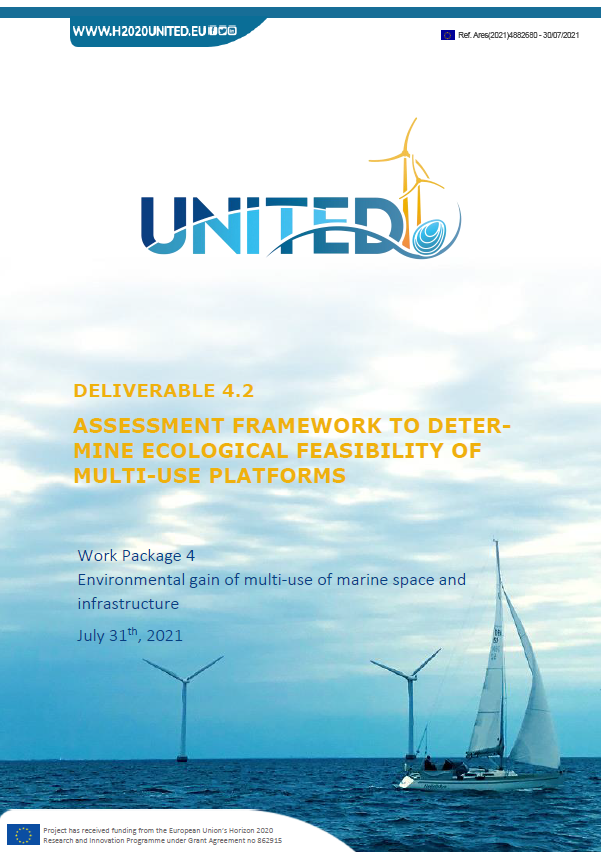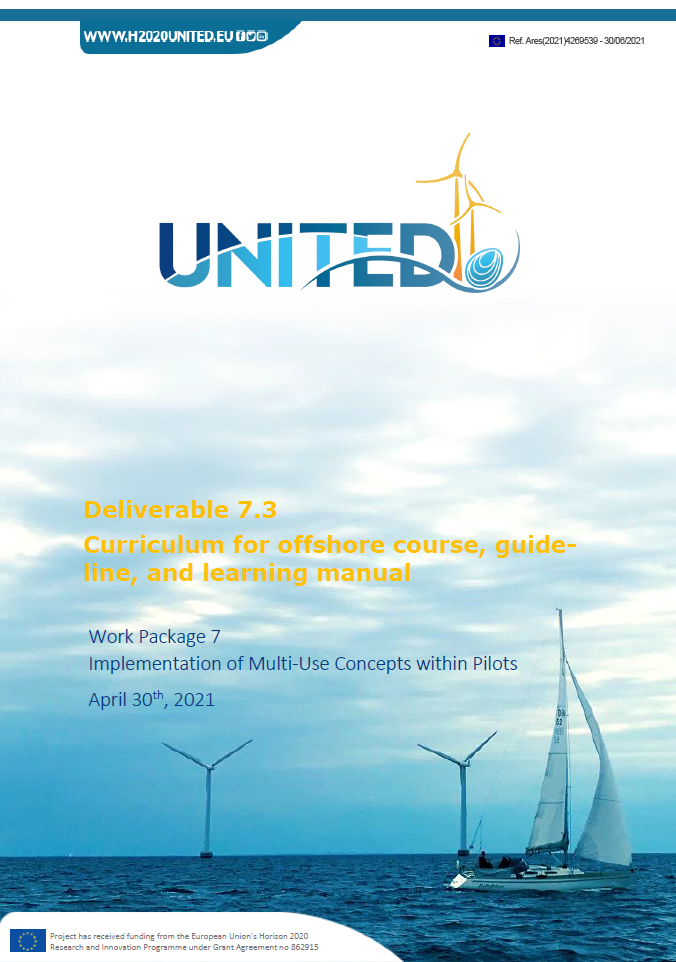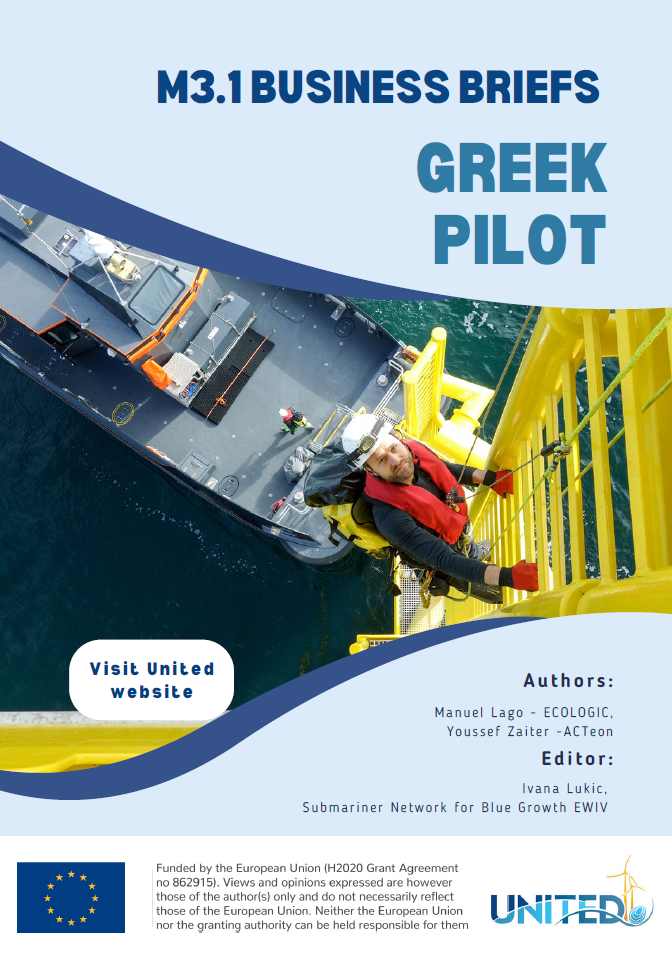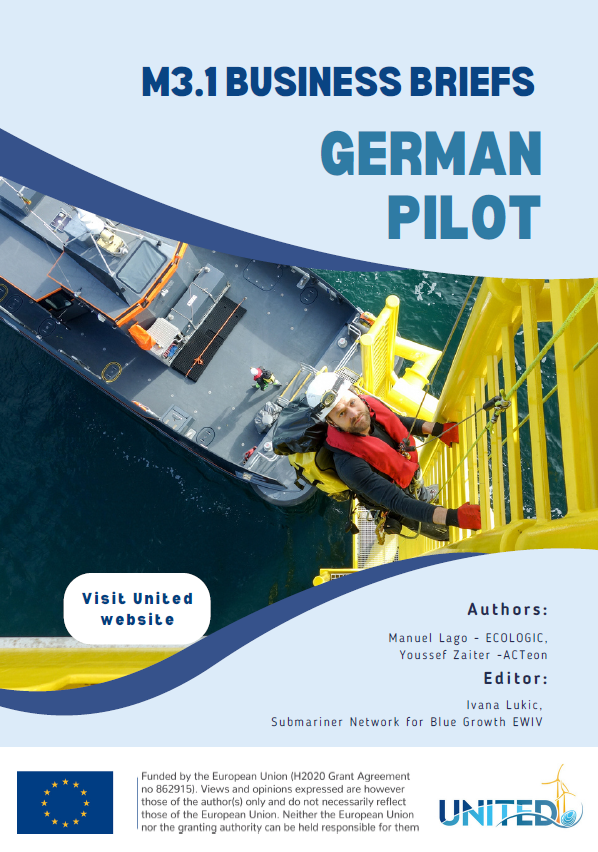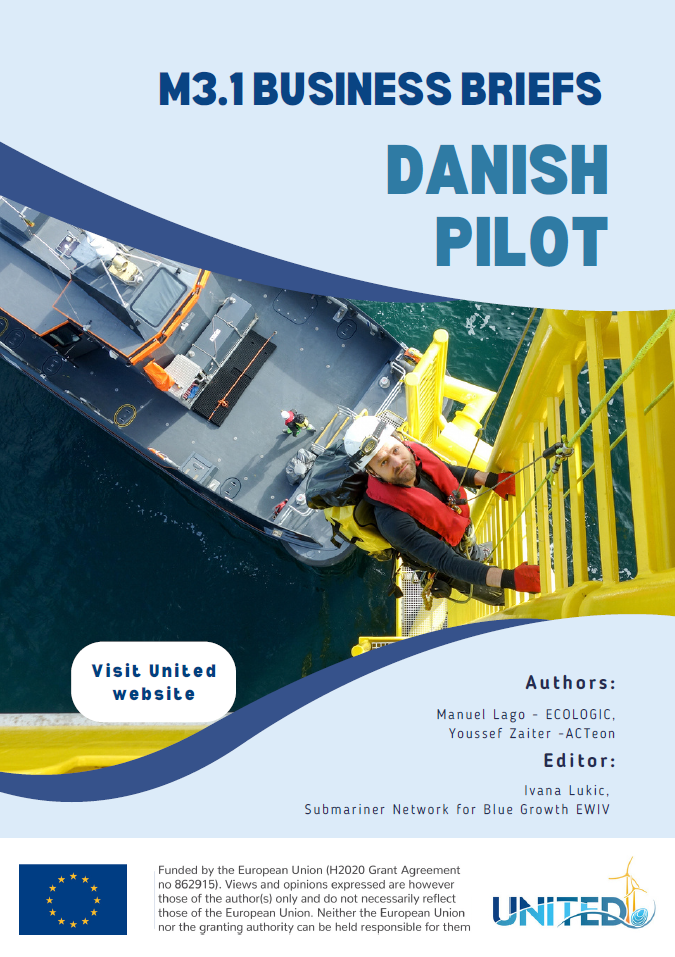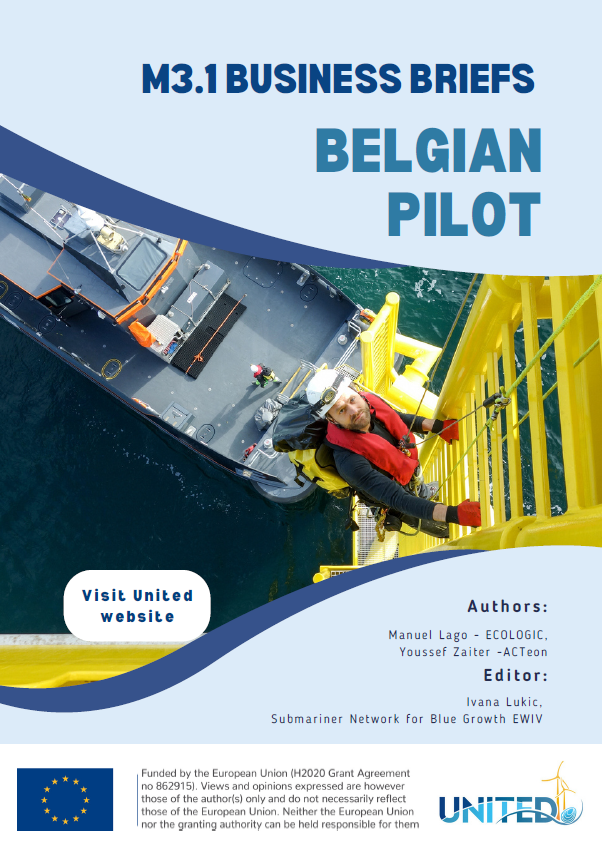Assessment on the Added Value of Marine Multi-Use within UNITED Pilots
- Publication
- Citation
Lago, Manuel and Youssef Zaiter 2023: Assessment on the added value of Marine Multi-Use within UNITED pilots. Policy Brief of the Horizon 2020 project "Multi-use Offshore Platforms Demonstrators for Boosting Cost-effective and Eco-friendly Production in Sustainable Marine Activities" (UNITED).
As competition for, and interest in, use of ocean space increases, a need for management arises to optimize activity in marine areas. This policy brief provides a comprehensive consideration of the economic efficiency of marine multi-use (MU) by weighing the pros and cons of individual use options against potential MU combinations.
Under the UNITED project, an economic impact assessment of ocean MU was performed under the context of four different pilot projects: German, Belgium, Denmark, and Greece, with the objectives of determining whether MU colocations are worthwhile and investigating the added value for existing marine uses to profit from the combination of activities in a MU setting. MU combinations include activities such as offshore wind energy, aquaculture, and tourism/recreation. The results demonstrate that, compared to single-use, MU approaches can have positive environmental, economic and social impacts, such as more efficient use of marine space, the creation of added value, the reduction of greenhouse gases and the improvement of habitats and fish stocks. Thus, MU is likely to deliver economic benefits of greater magnitude than the single-use options alternatives, however further research, policy support, financing opportunities, and regulatory frameworks are needed to develop the potential of MU in maritime spatial planning.
